Chinese Philosophy and the Dao of Madness
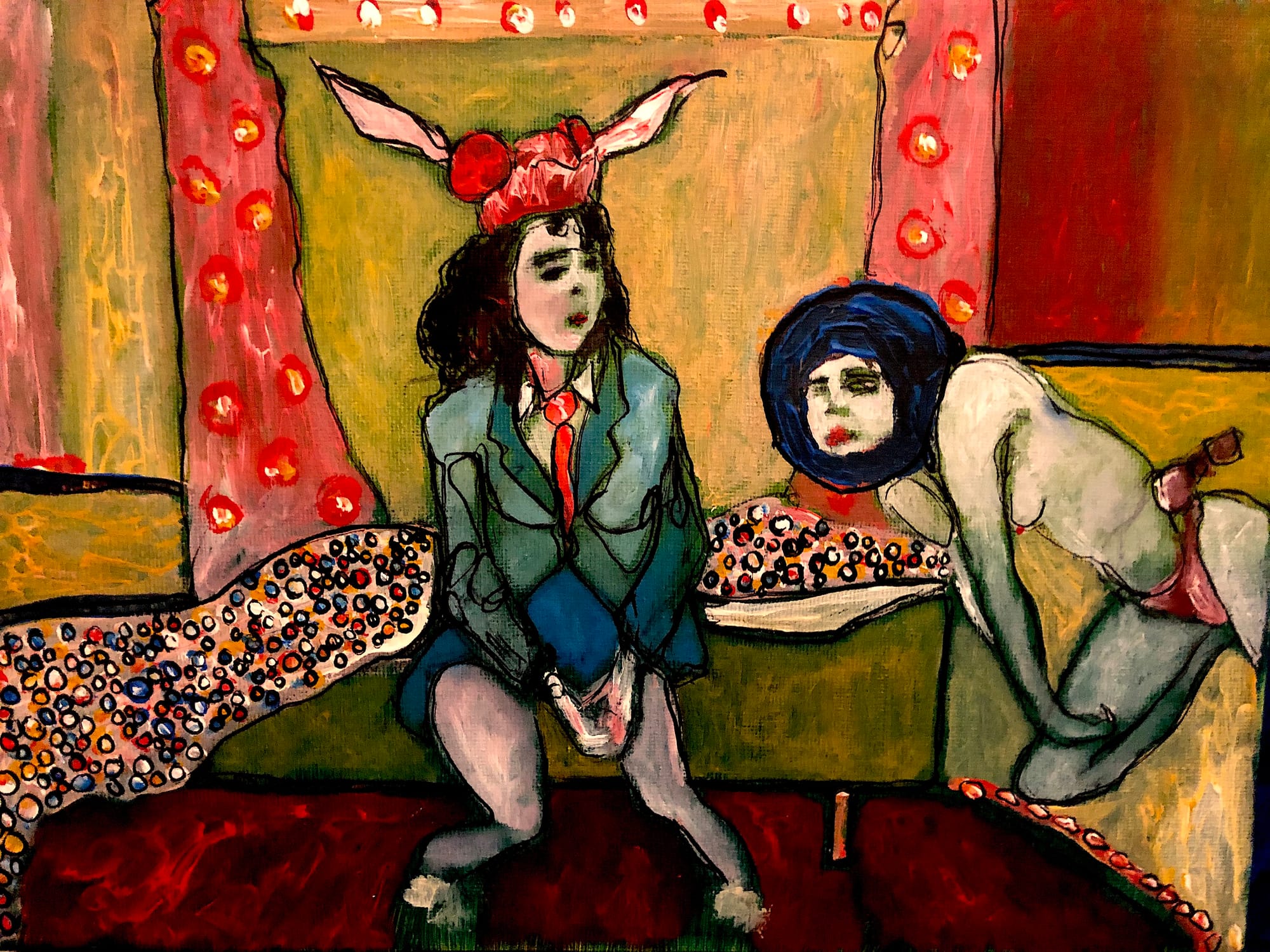
Interview by Richard Marshall
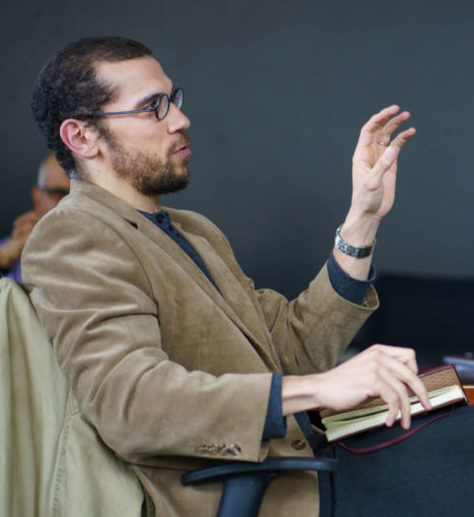
'One thing early Chinese thinkers understood well but for some reason we often struggle with in the West is that things can be and always are multiply owned, multiply constitutive. This feature can be both mine and my grandfathers—and it is mine because it is my grandfather’s. Other early traditions I work on, such as Mesoamerican Philosophy, also understood this point. I suspect that the reason this seemingly obvious and fundamental truth seems to elude us so often in the West has to do with conceptions of ownership and the rise of capitalism. The medieval West certainly understood this point well.'
'The concept of madness (kuang) in early Chinese texts is connected to a notion of transgressive behavior beyond ritual norms, generally resulting from uncontrolled strong emotions. In early usage it sometimes means just these strong emotions themselves—it has the sense of “ardent” or “energetic” in some uses. In the earliest discussions of the concept, even though madness is seen as belonging to the individual, there is very much a communal component to it, as with every other feature of the individual. Insofar as anyone bears responsibility for madness, the individual as well as the community in which the mad individual is formed both bear responsibility. Prior to the medicalization of madness in the Han, it is treated far more as a moral issue than a medical one. To that extent, the ideas about madness found in the medical texts of the Han much more closely resemble current day ideas about mental illness.'
'Think about the Western tradition as a whole—would it be correct to say that it is characterized by either naturalism or non-naturalism? That it is materialist, idealist, or something else altogether? Of course not—we find a variety of different views in the tradition, and few of us would claim that any one of them is the only one to be found in the tradition. The Chinese tradition is no different. Certainly naturalist views and movements can be found, particularly in certain periods such as the Han. But to paint the entire early Chinese tradition as naturalist is a mistake, and requires ignoring clearly non-naturalist elements of the tradition.'
'Just like the first rule of Fight Club is that you don’t talk about Fight Club, the first rule of Legalism is that you don’t openly endorse Legalism. As we see in texts such as the Hanfeizi, Legalism involves engaging in manipulation, subterfuge, misdirection, and other such means in order to maintain power. Such techniques tend to lose their effectiveness when one announces that they’re being used. How effective could a manipulator be who advertised himself as a manipulator? In the Han, we see this lesson taken to heart, and while we see the outward guise of Confucianism, texts often look far more Legalist. Now it’s debatable of course to what extent the Qin state did actually endorse Legalism openly. Unfortunately for us and for the Qin, due to its brevity the only surviving accounts of the Qin rule were written by the opposition, the historians of the Han dynasty, who had more than a little motivation to present the Qin as villainous and incompetent.
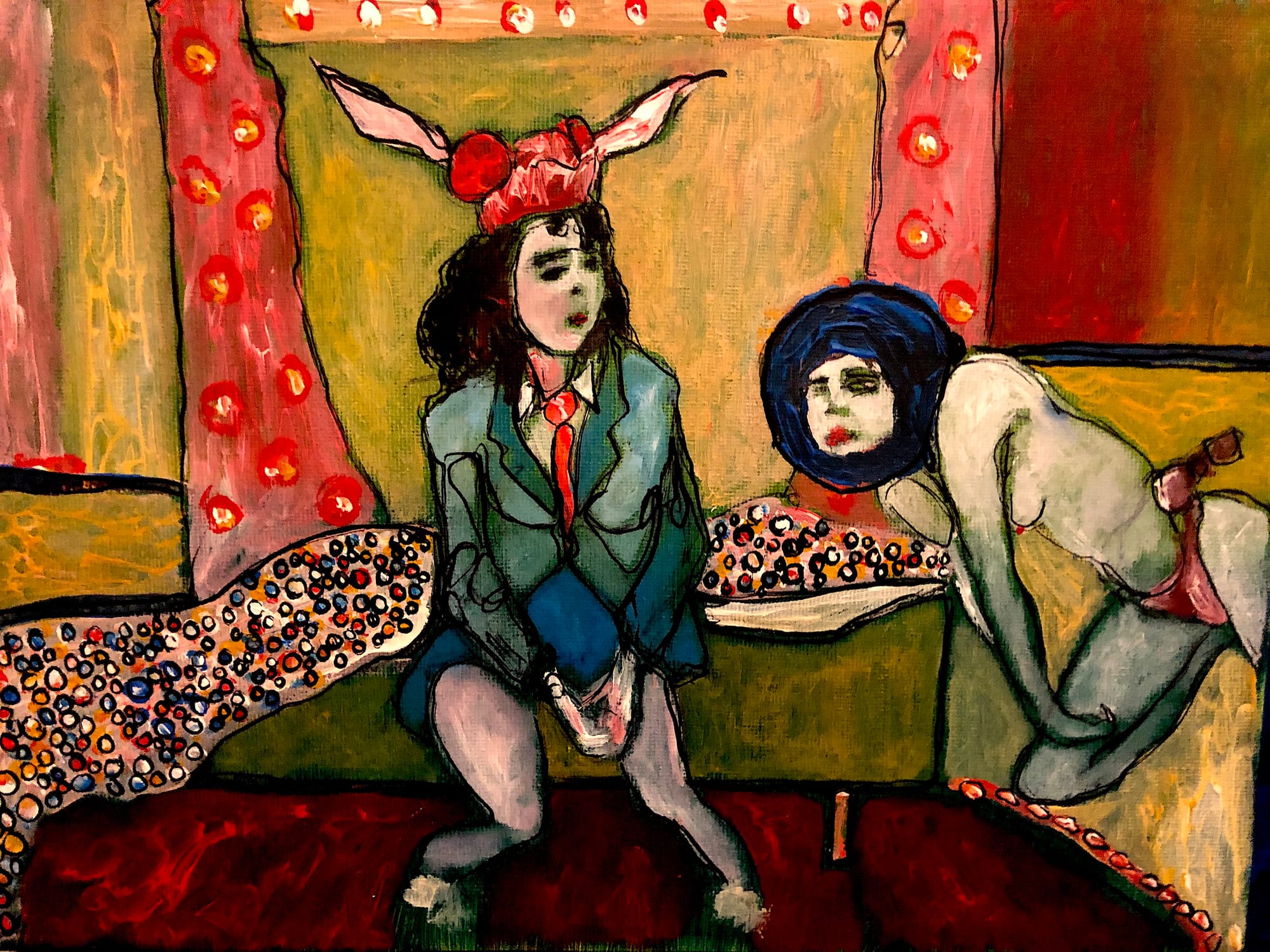
Alexus McLeod is a specialist in Chinese philosophy. Here he discusses mental illness and self-cultivation inearly Chinese philosophy, compares contemporary western psychiatry with ancient chinese approaches, ‘feigning’ and ‘celebratory’ approaches to madness, the syncretic view of madness andits link to the medicalisation of mental illness in the Huangdi Neijing and later medical texts, why its wrong to think Chinese philosphy is inherently naturalist, what ignorance about certain key Han Dynasty texts shows, how comparative readings with Christian philosophy finds evidence for a transcendent source of the cosmos in early Chinese thinking, political and moral thinking, Legalist and Confucian thinking, theories of truth, and the philosopher Wang Chong.
3:16: What made you become a philosopher?
Alexus McLeod: I kind of fell into philosophy. I was interested in a lot of different things as an undergraduate and hopped from major to major for years, until I realized that I could continue to read and learn about and work on something close to as wide a variety of topics I was interested in from within philosophy. I was restless and unfocused, studied physics, then geology, then literature, and a few other things in between, and finally landed on philosophy, relatively late. I think I just mainly enjoyed reading and writing, and the specific topic didn’t really matter. I studied Chinese language and culture at the same time, throughout my undergraduate years. I loved both philosophy and China studies, but at the time it was impossible to pursue both together. Even though there is a robust philosophical tradition in China (and one longer and more continuous than anything in the West for that matter!), Chinese Philosophy was not dealt with as a subject in the university I attended, particularly not in the philosophy department. And this was in the late ‘90s and early 2000s at a major state university! I discovered the Chinese philosophical tradition through my own personal reading (which would become kind of a common theme throughout my career), and through courses on Chinese literature and culture offered in the East Asian Languages and Cultures program. The first and only course I ever took covering Chinese Philosophy (and the only one offered at this massive university) was a Chinese Culture course offered by a linguist (and it was a fantastic class—one of the best I took at the university!).
My undergraduate institution, unfortunately, was not alone in its neglect of Chinese (or other “Non-Western”) material in philosophy departments. By my junior year, I knew I wanted to work in philosophy and Chinese studies, but there seemed to be no way to combine them, and few opportunities to study Chinese Philosophy in a graduate program in philosophy. The year I applied to graduate schools, 2002, was a pretty low point for Chinese Philosophy in philosophy departments even by the sad standards of today. There were not even a handful of philosophy departments where one could pursue a PhD in Chinese Philosophy at the time, and most of them were outside of the US. I decided to apply to philosophy programs that also had robust Chinese or East Asian Studies departments in which I could also work, to try to build a kind of patchwork program on my own. I was used to working and learning on my own already by that point. I already had training in Chinese from my undergraduate years, and just decided to study these texts on my own as I trained in philosophy in the more “familiar” analytic tradition.
I had no particular interest in the analytic tradition (my favorite philosophy class as an undergrad was Medieval Philosophy, which few students at my analytic-heavy department studied, but I absolutely loved). I was also more interested in history of philosophy than contemporary philosophy. But analytic philosophy was the flavor of the day in philosophy, so if I wanted to be in philosophy I had to train in it. My lack of taste for analytic philosophy didn’t have anything to do with a lack of ability in it—I was very good at it, and my teachers would often try to get me to work in these areas, but I just didn’t really have much interest in it. I always felt like if I wanted to do something like that I would have just stayed in physics or geology.
After doing an MA at Oklahoma (a wonderful department where I was able to get a wide background in different areas of Western and Chinese Philosophy), I went to UConn for my PhD, and then from there on through the years I’ve worked in philosophy to now. I worked pretty much solely on early Chinese philosophy for years, but over the years I’ve expanded the scope of my work to a number of different areas from Mesoamerican Philosophy to Indian Philosophy and Islamic Philosophy. Although early China has always been my “home base”, I like to stretch out, and my interests these days, while still squarely in the history of philosophy, are more broad-ranging, trying to think through questions of why traditions develop as they do, how a variety of philosophical traditions dealt with particular problems, and the variety of ways traditions develop alongside one another. I’m interested in why we think the ways we do, the goals of philosophical thought, and different conceptions of knowledge.
I’ve never had a conception of philosophy as a separable and unique field doing things that don’t heavily overlap with other fields. I’ve also never bought into the self-conception of philosophy some have, tied to a specific tradition like analytic philosophy or to a particular historical canon. My conception of philosophy is methodologically diverse and multidisciplinary. Philosophy can be and is done in numerous disciplines. I’ve explained before in some of my work that I see philosophy ideally as a kind of “research and design” wing of the academy. Part of what enables us (ideally at least) to generate knowledge is a lack of strict methodological constraints. Philosophy at its best is a kind of intellectual exploration, and the more methodological and stylistic constraints are placed on it, the less well it will function as such.
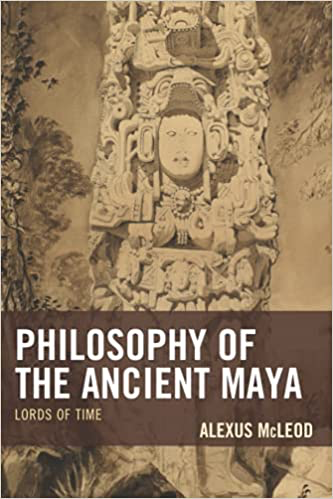
I think we sometimes try too hard to be like lucrative and currently more socially valued disciplines such as the physical sciences. But the methodologies of the physical sciences, while absolutely necessary for those fields, are not great well-suited to broad intellectual exploration, any more than following a map is well-suited to exploration of new land. In the physical sciences, we are looking to produce knowledge within defined parameters and methods that we’ve accepted as generating certain kinds of knowledge. It goes without saying that such methods are not much use when applied to themselves, when applied to thinking about what kinds of knowledge we should aim to produce or even what knowledge is. It’s like trying to use the rules of chess to think about whether we should play the game of chess, what variants of chess we might play, and the nature of games. To think about those things, we have to be able to set aside or operate outside of the rules of chess, and if we turn around and create new chess-like rules to govern our thinking about variants and why we play, then only certain predetermined kinds of answers will be possible, and we limit ourselves from the beginning.
Philosophy has the power it does (again, ideally) because it is not so methodologically bounded. We would be well served, I think, by emphasizing creativity as one of the defining features of philosophical thought, rather than technical facility or the oft-used yet hardly ever defined ‘rigor’, which seems nothing more than a euphemism for adherence to a particular style of writing and speaking that heavily leans on and tries to copy STEM fields. I’ve always been of the mind that one should never just try to copy someone else’s style or strengths. Discover and then do what makes you unique and valuable in a way no one else can be. We could be encouraging new and different things that offer something that you truly can’t find elsewhere, but we often are not. I started my academic life in physics. Physics is a wonderful and worthy field. But the world already has physics. It doesn’t need us to be physics. It needs us to be something different.
Though I think things are (slowly) improving, and are maybe a bit better today than they were when I started my career, we still quite often bind ourselves like this with strong methodological constraints, and thus weaken and limit what philosophy can do. Sometimes this is a conscious choice aimed at positioning ourselves within the academy—but when it comes down to it, we’re not going to justify our existence by being bargain-basement STEM. Most universities already have real STEM, so why do they need us? Not only is philosophy more valuable in the “big tent” methodological sense, but that’s also ultimately the way I think we have the best chance of survival and retaining an important place in the academy. But that’s a discussion for another place!
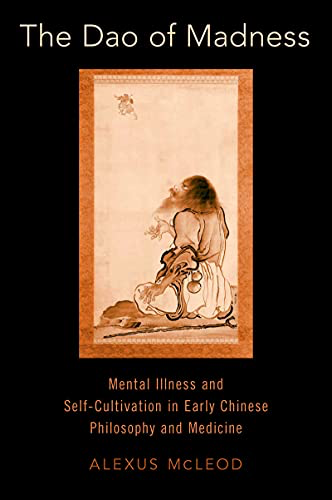
3:16: Your new book looks at mental illness and self-cultivation in early Chinese philosophy and medicine. To help orientate us, can you say what period you’re looking at, and what were the dominant views of the self, agency and moral responsibility at that time? And how are you understanding madness – could you not be accused of being anachronistic? I always thought that Chinese civilization was non-individualistic and so notions of identity were essentially relational and communal and so there must be something different about how madness was thought about, but you seem to be saying that pre-Confucianism it was more like modern thinking. Is that right and if so, how did views of madness shift to the cultivational views dominant in early Confucian texts?
AM: In the book I cover the period from the early texts of the “Spring and Autumn” period prior to imperial China through the Han Dynasty, specifically with the construction of the Huangdi Neijing (Internal Classic of the Yellow Emperor), which can be considered the first medical text of Chinese history. This is a period stretching roughly from the 6 th century BCE to the 2 nd century CE, with the occasional foray into something slightly earlier or later. That’s an enormous span of time, and views of madness (and many other views) changed quite a bit over this time. While we generally think of this entire period as “early China” and sometimes understand it as an intellectual monolith, we have to remember that the distance between the beginning and the end of this period (taking it defined as stretching from the life of Confucius to the end of the Han Dynasty) is longer than the distance between the present day and the beginning of the Protestant Reformation, Columbus’ arrival in the Americas, or the Black Plague. The beginning and end of this period are about as close as the present day is from the life of Francis of Assisi, Thomas Aquinas, and Genghis Khan.
One prominent view of the self through much of that time was associated with Confucianism (although it wasn’t limited to Confucianism, thinkers within that system just discussed the issue more). It wasn’t (either in this time or later Chinese history) so much that this system did not think of people as individuals, but rather that they understood that individuals are always more than just individuals. Each of us is a construct of different elements of society, different parts of the genetic code of our parents, different attitudes and preferences generated by our social environment.
When thinking about what we are as individuals, how we generate action, and what we have responsibility for, all of these communal and social elements must be taken into consideration, because we are comprised primarily of these. Think of any feature we have that does not come from our community and/or environment. If human activity is created by a combination of “nature and nurture”, which of these aspects is not communal? Our “nature” is determined by genetics, which is all inherited from parents, and through them from previous ancestors. So our nature is the nature of our father and mother, of our grandparents, our great-grandparents, and so on. My hair, eyes, height, and build are mine, but they are not only mine, they are mine because they are my father’s or mother’s, my grandfather or grandmother’s. One thing early Chinese thinkers understood well but for some reason we often struggle with in the West is that things can be and always are multiply owned, multiply constitutive. This feature can be both mine and my grandfathers—and it is mine because it is my grandfather’s. Other early traditions I work on, such as Mesoamerican Philosophy, also understood this point. I suspect that the reason this seemingly obvious and fundamental truth seems to elude us so often in the West has to do with conceptions of ownership and the rise of capitalism. The medieval West certainly understood this point well. Something happened in modernity that turned us all into disconnected individuals, and it was probably new conceptions of ownership. Because if individuals are fundamentally also communal in nature, then what does it mean for you to own something and have rights over it that don’t transfer more generally to the community of which you are comprised?
The West, of course, didn’t create the concept of the individual, and honestly I don’t actually think there is as much difference between the mainstream Chinese and Western views as sometimes claimed. We talk a lot about the individual as distinct from the community, but we don’t really have a good explanation of what the individual consists of, what makes it different than the community that comprises it, or just what its separability or autonomy consists in. In the West we also tend to ignore the fairly obvious ways in which none of us can be considered distinct from the communities we inhabit. I often hear about the focus in East Asian societies on community and conformity as supposedly different from Western societies, yet here in the I see people with the same names everywhere, with shared attitudes and behaviors so similar it becomes hard to tell people apart, we can generally tell you what kinds of things you like just by looking at you or knowing where you come from. We have almost fully complete worldviews attached to political parties (if an American tells me they’re a liberal or conservative, Democrat or Republican, I can accurately predict a large number of their beliefs, behaviors, preferences, and even personal style). The biggest difference between Chinese and Western conceptions of the self is that in the West we tend to neglect, ignore, or fail to admit the ways in which we are fundamentally tied to our communities. It really is inexplicable—even the insistence on individuality and the ignoring of our fundamentally communal nature itself should show our communal nature—because we all hold it. Westerners are every bit as communal and conforming as Chinese.
The concept of madness (kuang) in early Chinese texts is connected to a notion of transgressive behavior beyond ritual norms, generally resulting from uncontrolled strong emotions. In early usage it sometimes means just these strong emotions themselves—it has the sense of “ardent” or “energetic” in some uses. In the earliest discussions of the concept, even though madness is seen as belonging to the individual, there is very much a communal component to it, as with every other feature of the individual. Insofar as anyone bears responsibility for madness, the individual as well as the community in which the mad individual is formed both bear responsibility. Prior to the medicalization of madness in the Han, it is treated far more as a moral issue than a medical one. To that extent, the ideas about madness found in the medical texts of the Han much more closely resemble current day ideas about mental illness. In fact, it is not until this time that we see states like madness referred to as ‘illnesses’ (bing) at all. Prior to this, it is taken as a trait or a condition, one variously indicated as blameworthy, praiseworthy, or neutral, but it is only with the development of a broad conception of illness and health in the medical texts that madness and similar states become illnesses, and also then seen as treatable via the methods of medicine. Early Chinese medical approaches to treating madness do involve some influence from earlier views.
Like the Confucians, the medical texts take madness to be caused by excessive emotion, but unlike those texts, they explain this in terms of a particular organization of qi, which can be controlled through physical manipulation. Application of cold, for example, was thought to reduce the heat associated with heightened emotions leading to madness. This all becomes possible because of the system of “correlative cosmology” developed in the late Warring States and early Han, that associates the characteristics of things with other forces or principles in the world that can be manipulated. In this we truly see a kind of “proto-science”. Consider the regulation of emotions, for example. In earlier thought on this topic, the tools said to be at our disposal for such regulation are mostly agential. We regulate our inner states, according to Confucians (as with other ancient systems like those of the Buddhists in India or Aristotelians in Greece) through thinking, reasoning about what is best, choices, commitments, and development of habits. All agential rather than physicalistic causal-deterministic processes. With correlative cosmology in early China, however, we see the association of agential and mental states with physical and other correlates.
So heightened emotion becomes associated with heat, which is associated with abundant (or yang) qi. Thus, operation on temperature or quantity and placement of qi will have the downstream effects of changing internal, mental states. This offers us a unique way to treat states like madness that was not available to earlier thinkers. Because one troublesome feature of madness is that it alters one’s agency itself. A mad person simply cannot engage in the kinds of reasoning and deliberative choices and proper selection of and application to commitments that the Confucian, for example (like the Aristotelian) thinks is necessary to ensure one does not become mad or to remove oneself from madness. Thus, the mad person is essentially trapped, and ruined. The medicalized view of madness allows a way around this. If certain physical states are correlatively associated with mental ones, then manipulation of those physical states ought to have mental effects, thus opening the possibility of the treatment of mad persons.
This is a major shift in early Chinese thought, and one that opens the door to ways of thinking about mental illness that look very much like contemporary ways of thinking. Notice that today we think about mental illness and its treatment in very much this same way. We tend to take a multimodal approach to treatment. We give drugs as part of treatment of such illnesses, but generally combine this with more agentive elements. While modern medicine does not generally accept the value of application of cold or pressure therapy to promote proper circulation of qi as physical treatment of mental illness, the medical views of madness (and other conditions) that develops in the Han gives us a method almost exactly like that used today, even if these early thinkers still had not successfully located the physical etiology of mental illnesses (which required a much more sophisticated understanding of brain functions that we are still trying to work out today).
3:16: Why do you think it important and helpful to approach the idea of madness in early China as a dao, a way of being? Is it so that we can see better the disputes between how madness was evaluated and therefore contrasting positions, such as between Confucians and Zhuangists?
AM: The reason I present madness as a dao in the book is because that’s largely the way it was understood in the texts I deal with in the book—at least before the medicalization of the Han. While today mental illness is understood as illness (and it came to be seen as such in the Han as well, as discussed before), the “mad” person in many early texts was understood as being committed to or following a particular way of life or form of activity that manifested itself as “madness”, whether due to particular choices, rejection of norms, or whether it was unintentional. Madness (kuang) in this context was a collection of traits and commitments—something like what we would think of as “character”. Thus we can see how in these early texts madness was relevant to issues of agency and moral self-cultivation.
In the earliest literature before the development of the medical concepts of the Han, madness is understood very much in terms of commitments, communal construction, character, understanding—all of the elements that generally are associated with the notion of a dao. When early Confucians talk about the “way of the former kings” (xian wang zhi dao), they mean the ritual norms, character traits, decisions, attitudes, behaviors, and other elements of the thought and activity of the former kings. Their dao is their way of being. Discussions of dao generally concern particular ways of life as examples or guides. A dao does not necessarily have to be a positive example, however. The vicious person also has a dao—a pattern of traits, thoughts, and behaviors specific to and definitive of them. A dao, because it is codifiable, is something we can follow, cultivate, adhere to. It gives us a map or signpost, and we can follow a dao, or use a dao to mark the dangerous points to avoid. We use the dao of others to gauge our own way of life.
In the case of madness as dao, we find (at least) two competing conceptions in early material, one understanding madness as constituting a negative, dangerous, and blameworthy dao, and the other understanding it as constituting a dao associated with knowledge, one we should either aspire to or learn something from (if we are unable to personally achieve it). Madness here is still not understood in terms of medicine, and this idea develops in the early Han dynasty, with what I refer to as the “naturalistic shift” in China, where we see the development of a variety of systems of correlative cosmology and moves toward thinking about events in the world and human behaviors both as results of independent and often deterministic patterns and processes. The discussion of madness as dao points to the contrasting understandings of madness we can roughly associate with Confucian and Daoist (or more accurately Zhuangist) views. Both of these views tie madness to agency, but ultimately evaluate it differently, with the “Confucian” view taking madness as a kind of character flaw and the result of insufficient moral self-cultivation, and the “Daoist/Zhuangist” view taking it as a route to and sign of proper understanding of the world, and the recognition of the limitations of ritual and other constraints that make thriving impossible. I use the labels of ‘Confucian’ and ‘Daoist’ to refer to these contrasting views because these views are mainly held by thinkers and found in texts traditionally associated with those respective intellectual traditions. While Confucianism and Daoism are sometimes used more literally and simplistically than they should be—neither was a “school” in the sense of an organized and cohesive group of teachings or intellectual commitments (especially in the case of Daoism)—they do serve as useful names for particular strains of thought influential in Chinese history, including during the period discussed in the book.
3:16: Is the approach of contemporary modern psychiatry in the west radically different from that of these early Chinese and why do you consider mental illness in terms of qi, ‘vital essence’, mind, and community and how do the early Chinese think about how illness affects agency, - both physical and mental?
AM: In some ways contemporary psychiatry is different from early Chinese approaches. It’s certainly very different than the approaches we find in early Confucian and Daoist texts. There are some ways in which modern psychiatry echoes what we find in early Chinese texts, however. Some elements of the Daoist approach to madness can be seen in contemporary psychiatry. Indeed, some of the reason for this is that psychology today is sometimes outright directly influenced by Daoist views. There’s a long story to be told about how certain “Eastern” ideas entered the Western cultural milieu, first in the 19th century with movements like Theosophy and then again in the 20th century with the “counter-culture” movements mid-century in which people looked to Asian ideas as alternatives to the West. Daoism and Buddhism in particular gained traction in the West in this period, which explains some of the reasons that Zen Buddhism became such a force in the West (as Zen can be described as a kind of Daoist-Buddhist hybrid). Of course, both the Daoist and Buddhist traditions have an enormous amount to say about the mind, mental illness, thriving, and mental wellbeing, so much of this was adopted by psychiatrists, psychologists, and other scholars concerned with the mind in the West. We see echoes of Daoism (and Buddhism even more obviously) in Western psychiatry in part because of this influence. In contemporary psychology, there is more direct admission of this influence, with Daoist (and also often Buddhist) ideas and techniques forming core parts of such techniques as cognitive behavioral therapy.
Of course there are other reasons for the similarities between modern psychiatry and early Chinese thought too. Independently of the direct influence mentioned above, medical texts such as the Huangdi Neijing, though still far from modern in their conceptions of medicine, begin to understand madness as a disorder and illness (bing). We see in the Han period what I call the “medicalization of madness” in early China. It ceases to become a dao, and becomes an illness. To a large extent this is the story I tell in my book—how madness went from dao to illness in the centuries surrounding the beginning of the Common Era. This pathologization of madness and other mental states allows the early medical scholars to fit such states into a system of medicine, in which both etiology and cure play roles. The Huangdi Neijing’s understanding of the causes and the treatments for mental illness are certainly very different from those of contemporary psychiatry. But like contemporary psychiatry, the Huangdi Neijing presents states such as madness as mental illness, sees them as having natural or physical causes, and understands them as treatable via the means of the physician. That is, the Huangdi Neijing formulates perhaps the first early Chinese view of mental illness, a view that in its most basic generality is roughly the same as that of contemporary psychiatry.
Early Chinese views of madness, particularly in the medical texts but also elsewhere, understood almost every aspect of human activity in terms of qi. Qi was a very general concept through much of early Chinese history, often having the sense of something like “vital stuff”. Paul Unschuld and Hermann Tessenow, in their translation of the Huangdi Neijing Suwen, describe qi as “a vague concept of finest matter believed to exist in all possible aggregate states, from air and steam to vapor or liquid and even solid matter.” (HDNJ, 20). In the early medical texts, qi is used to explain certain kinds of physical operation or activity—movement, quantity, and type of qi were held to be responsible for all kinds of disorders and illnesses that could befall a human being. Treatment of these illnesses required operation on qi, according to the medical texts—processes such as bleeding, needling (accupuncture) and moxibustion, application of heat or cold, and ingestion of medicines. These processes allowed for the regularizing of the flow and location of qi, as illness was seen as resulting from blocked, absent, or improperly circulating qi through the body. While qi was understood as this kind of subtle matter that Unschuld and Tessenow discussed, it was also understood as having a kind of vitality, and qi was often used in this sense (across various texts) to refer to vitality or vital energy.
As far as agency and mental illness—most of the discussion in the Confucian and Daoist texts I look at in my book surrounds the relationship between madness and agency. The mad person is unable to reason, choose, and make decisions in the way the non-mad person can. The person’s disorder affects their very capacity to think and act in particular ways, and thus for the Confucians the mad person is in a sense barred from the project of ethical cultivation. Once one becomes mad, one is in that sense beyond hope, as the strategies the Confucian offers to develop moral character simply are not open to the mad person, whose deliberative, motivational, and behavioral capacities themselves have been altered by their condition. The mad person then becomes to some extent akin to the “petty person” (xiao ren) for the Confucian—one who is simply unable to follow or benefit from the Confucian project of self-cultivation.
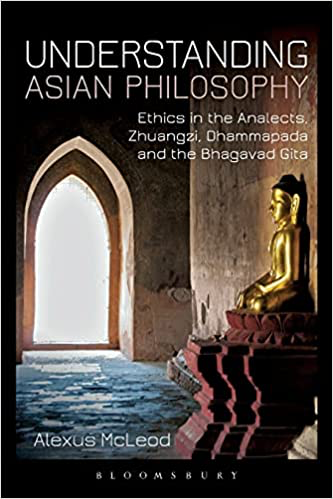
3:16: There were ‘feigning’ and ‘celebratory’ early Chinese philosophers approached madness and mental disorder weren’t there? So what are these - what do each of these contrasting approaches focus on and what recommendations do they propose? And because of the rather messy and porous nature of early philosophical ‘schools’ and movements, is it a mistake to align a position with one school or movement?
AM: This is a good point—the lines between “Confucian”, “Daoist”, and other traditions are not very clear, particularly in the Han. These positions are best understood as something like tendencies rather than doctrines belonging to particular schools. We do of course find very specific views in particular texts, such as the Xunzi, Mengzi, Kongzi Jiayu, Zhuangzi, and other texts I discuss in the book. But the association of these views with wider trends within intellectual traditions is a matter of degree. The views I categorize in terms of Confucian and Daoist traditions here have a close family resemblance to one another, and generally develop out of shared and agreed upon assumptions, general views, and aims. But we also see quite a bit of crossover. The Han dynasty text Huainanzi is a perfect example of this. It includes aspects of views we might consider Confucian as well as Daoist (and other) views. This is the reason it is often referred to as a “syncretist” text. But one thing we might take from this instead is that this simply shows us the limitations of the idea that there are certain purely Confucian or Daoist views. These ideas associated with these traditions were well-known in the Warring States and Han, and they were shared and drawn upon by a variety of different thinkers who intellectually resembled one another to a variety of degrees.
The “feigning” approach to madness is generally found in texts associated with Confucianism in some sense, or perhaps more properly “traditional” texts. Moralists in early China tended to understand madness as resulting from character flaw due to a combination of improper self-cultivation and bad communities. Along with this, though, there was a view that the mad person could not be employed in certain ways and was thus free of certain kinds of responsibility. Madness could thus be feigned in order to escape from difficult situations that might otherwise lead to disaster. Interestingly, Confucian moralists did not always reject the feigning of madness as a strategy. Indeed, the Confucian philosopher Xunzi was said to have feigned madness toward the end of his career in order to escape a bad end in a wicked society. This leads to an interesting and multifaceted view of madness in early Confucian and traditional texts generally. There is always an underlying suspicion of madness, because it is always available as a strategy to avoid certain kinds of responsibility. At the same time, there seems to be a belief that madness is a real thing and not always an act. Genuine madness, however, is not an illness, but a character flaw. Thus, even those who feign madness to escape certain difficult situations do not emerge unscathed. Insofar as their subterfuge is successful, they take on the stigma of madness, and a reputation for flawed character. This is why the strategy of feigning madness is generally seen as a last resort—when the only other option is death. All of this, of course, relies on a mainly negative view of madness, on which madness is an impediment to proper performance.
This is subverted on the “celebratory” account, which takes madness as linked to special insight, knowledge, and ability beyond that of others. This view of madness is most clearly found in the Zhuangzi, although as I discuss in the book its roots lie elsewhere and it shouldn’t be seen as a strictly or uniquely Zhuangist view. This position also seems to be absent in other texts often categorized as “Daoist” along with the Zhuangzi, such as the Daodejing. The celebratory account relies heavily on earlier Confucian and other conceptions of madness. It serves as a criticism of traditional views of proper behavior and character, as well an expression of the unconventional nature of the Zhuangist ideal person. According to the Zhuangist view, when we adhere to a narrow set of social norms as the Confucians and others enjoin—in this case their concept of ritual (li)—we become unable to shift perspectives and to change along with things, in order to recognize other perspectives and thus attain to a fuller knowledge. Thus, the Zhuangist view associates knowledge with a kind of transgressiveness, an ability to move outside of the narrow norms of society, and to evince the kind of activity and thinking that society generally calls mad.
Of course, this suggests that the Zhuangist view, rather than celebrating madness, actually takes the position that those who are called mad are not mad at all, but rather are simply able to understand and respond to aspects of the world others cannot. This is not the direction the Zhuangzi takes, however. There is nothing in the text that suggests that the madness of the knowledgeable person is not truly madness. In fact, accepting that it is genuinely madness is consistent with another message we find throughout the Zhuangzi, concerning the so-called “use of the useless.” Part of the problem with the Confucian view is that it takes certain things, states, people, etc. as valueless and others as valuable. The Zhuangzi argues that the only way to attain true thriving and knowledge is to recognize that nothing is truly valueless, and that from the proper perspective we can see or maximize its value. This is true of everything, including madness. It is thus not that a person we think is mad is not truly mad, but rather that madness need not be understood as a flaw or demerit, but understood from the right perspective can be seen as a boon. For the Zhuangzi, something like madness is sure to result from developing one’s ability to shift perspectives. This Zhuangist view went on to be highly influential in later Chinese tradition, and can be found in ideas like that of the “mad monk” figure popularized in Zen (Chan) Buddhism long after the time of the Zhuangzi.
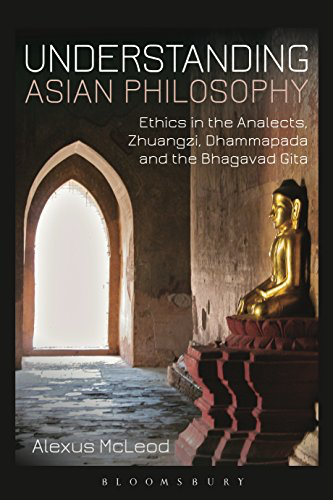
3:16: What’s the syncretic view of madness, mental illness and self cultivation in the early Chinese philosophy, and why do you think it is an improvement on the ‘feigning’ and ‘celebratory’ approaches?
AM: The syncretic view developed largely as a result of two causes: the naturalistic shift and correlative cosmology of the late Warring States and Han period, and the integration of the Zhuangist removal of madness from the category of the moral and the recognition of positive elements of madness. The syncretic view accepts the Zhuangzi’s idea that there are certain valuable states that the mad person is able to achieve by dint of their madness. The syncretic view rejects the Zhuangist romanticization of madness, however. The mad person, just like the Confucian sage, is stuck in a particular perspective with all of the problems that entails. It is not that the mad person can be a perfectly cultivated person by Confucian standards and can shift perspectives to that of the mad person. Rather, they can only be mad and can not be the cultivated person. It is ultimately not possible to shift back and forth between different ways of being. We are all determined by our own abilities, constitution, allotment, and way.
The syncretic view is a big step toward the medicalization of madness we see in the Han, and in that sense I think improves on earlier accounts because it neither locates madness in a character flaw as Confucian views do nor celebrates madness as a sign of deeper understanding as Daoist views do. It is much more open-eyed in general about the realities of madness for the person suffering from it—there are no clear incorrect moral choices the person afflicted by madness makes that causes their state, and it is also a mistake to think that madness contributes to the understanding of those afflicted by it. The syncretic view, more than either the Confucian or Daoist views, strikes me as something a view created by someone with actual experience of madness or mad persons. Maybe part of the reason for this is the inclusion of physicians and others experienced in treating the mentally ill (or having experienced these issues themselves) in the scholarly group Liu An brought together to create the Huainanzi. The Confucian and Daoist views of madness are both views that would be difficult to square with the actual experience of mental illness corresponding to the description of kuang (madness). There is no clear way in which moral decision making figures into madness, with excellent deliberators and morally conscious people stricken with it just as the morally reckless or dissolute. Similarly, the purported advantages of madness that Daoists point out are also based on illusion and misunderstanding. The person stricken with madness is not one who recognizes some important features of the world and thus refuses to be bound by conventional perspectives, but rather one who is stuck in their own ways, in mental states that diverge from those of most others. The Huainanzi has a great passage about madness, that I discuss in the book. It takes aim at views like the Daoist view that glorify madness.
“…mad persons are without grief, and sages too are without grief. Sages are without grief because they harmonize by means of potency, whereas mad persons are without grief because they do not know the difference between bad and good fortune.” (Huainanzi 21.19)
Other passages of the Huainanzi also discuss madness in ways that take it as neither a moral failing nor an advantage and special kind of insight. Instead, the Huainanzi presents madness as a disorder based on imbalances in the individual. One passage in the Huainanzi claims that for the mad person, “bodies and spirits have lost their relative positions.” This is the opening salvo in the medicalization of madness. In later texts, we see refinements of views like this, using the methodologies and components of correlative cosmology and early Han metaphysics to explain madness in terms of emotion, qi, and physical constitution. This enables early medical thinkers to conceptualize madness as an illness and also as something potentially treatable through medical techniques. The syncretic view of madness then is a pivotal step away from the moralistic conceptions of madness in the pre-Han period and toward the medical conception of madness.
3:16: How was this early Han syncretic movement connected to the medicalisation of mental illness in the Huangdi Neijing and later medical texts and how do you think these early Chinese views of mental illness and self-cultivation might link up with contemporary thinking around these issues?
AM: As I discussed above, the syncretic view allowed for the conceptualization of madness as a disorder based in structural features of the human organism, which represented a major step toward the medicalization of madness. The other vital development in the Han is what I call a “naturalistic shift”, in which we begin to see explanations of natural phenomena that look much more naturalistic in a contemporary sense than much of what we find before the Han. Part of what is going on here is the establishment of metaphysical systems that take changes in nature to be part of regularized and even deterministic patterns—we see the development of systems of so-called “correlative cosmology” such as the “five phases” (wu xing ) and yin-yang theories of change. Much of what is attributed to human agency in earlier periods is shifted to explanation based on the patterns inherent in things connected to these interactions between phases or yin and yang. This naturalistic shift also is likely non-coincidentally connected to the flowering of sciences during the Han dynasty, including astronomy, medicine, and numerous other sciences. Of course, all of this is linked to the issue of empire as well. With the stability and resources of empire, large-scale intellectual projects could be developed that would have been impossible in earlier times. The same thing is the case today, of course. Certain scientific and intellectual projects are only possible when done by groups with the enormous time and resources required. The Hubble Space Telescope and what it has enabled would not have been possible without the support of massive states and institutions. Many scientific discoveries and innovations could never have been made without the support of the massive resources and organizational strength of large-scale institutions such as empires, or in the modern world nations and corporations.
Thus we see many new projects and ways of thinking emerge in the Han, with new ways of thinking about metaphysics at the very center. The political situation of the Han was also of course relevant to this—the syncretic tendency itself emerged along with the concern of the Han court to unify and fuse the various culturally, linguistically, and otherwise disparate areas of their new empire. The notion of universal patterns of activity very much appealed to an ideology of empire, and this just gave further impetus to the naturalistic shift we see throughout the Han. New ways of thinking about medicine emerged as a result of this, along with the medicalization of certain mental and physical states not generally treated as such in earlier periods. The universal and agency-independent patterns of nature that explain change were operative in the case of illness and health, according to Han thinkers. While the role of agency was not completely eliminated (nor is it in contemporary psychology!), the direct mechanism of illness was understood as involving changes in quantity, location, and orientation of vital energy (qi). This also allowed for medicalization in terms of treatment by physicians to cure such imbalances. Many of the techniques (and all of the theory) of traditional Chinese medicine trace back to this period. Although surely much of this technique and theory has origins further into the past than the Han, it was in the Han that this medical thought was systematized, technically developed, and applied to specifically formulated illnesses (bing) such as madness (kuang).
The views of mental illness found in texts such as Huangdi Neijing will look far more familiar to today’s readers than either the Confucian or Zhuangist views of madness do. While they do not perfectly align with contemporary views of mental illness, they do offer an account of mental disorder as mental illness which earlier views do not. They also link mental disorder of various kinds with disorder of the body. While many have argued that the Chinese tradition has always understood the mind and body as inseparable and even indistinct categories, this is not so (as Edward Slingerland has argued in Mind and Body in Early China and I argue in The Dao of Madness). What is however true is that mind and body become more closely linked in the Han, through the development of understanding of both as fundamentally linked to qi (whether through determination, constitution, or some other relation). As Joshua Brown and I argue in our book Transcendence and Non-Naturalism in Early Chinese Thought, much of the naturalistic reading of early China that includes the “monistic” reading of mind and body, comes from Han metaphysics, but is attributed to earlier philosophers. There’s no doubt that much contemporary thinking about mental illness and the mind in general is closer to Han medical thought than it is to what came before it. And as I argue in the book, the approaches to mental illness in early China may (and I think does) hold some important lessons for psychologists, psychiatrists, and those working in areas related to mental health today.
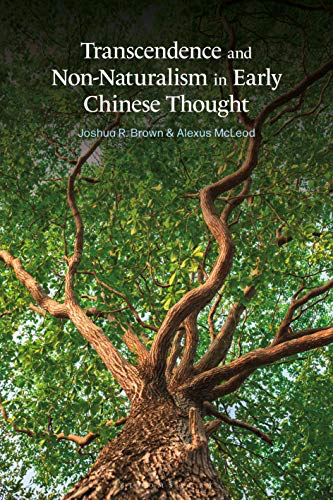
3:16: You’ve argued against the view that Chinese philosophy is inherently naturalistic and done so by arguing that early Chinese texts as having notions of ‘transcendence ‘ in them. You see three main problems with assuming early Chinese philosophy is naturalistic. Can you sketch for us what these are?
AM: In general, I think that when we make claims that entire philosophical traditions of enormous parts of the world, like that of China, manifestly represent a single side of a divide that is recognized in the West or elsewhere, we’re basically always wrong. If there are naturalists and non-naturalists in Western philosophical history, why should we not expect to see this elsewhere in the world as well? The presumption should always be that a tradition included a diverse array of views, and the argumentative burden should be on one who wishes to make the claim that a tradition doesn’t include such diversity but represents only one philosophical position. Of course, much more can be said for my case than this, but fortunately one who insists on philosophical diversity within a tradition has a much lighter argumentative burden to bear than one who denies such diversity. All I have to do is show that particular views are *there*, not that everyone holds them, while my opponent has to show that *no one* in the tradition holds certain views—something they certainly cannot do. Someone who wants to show that there are process metaphysicians in Western history only has to point to Heraclitus or Plotinus, while one who wants to deny process metaphysics happens in the West would have to demonstrate that there are *no* philosophers in the tradition who offered such a view.
As you mention, in the book, Josh Brown and I begin by mentioning three main problems with the “early Chinese thought was naturalist” view (and we build on these and develop new problems later in the book). First—when we understand entire traditions through particular frameworks such as a naturalistic framework, we can find much of use, but we will also miss a great deal as well. Any interpretation of a text, tradition, or thinker requires an interpretive framework, but any given framework is necessarily limited. Gaining a greater understanding of a text or tradition requires understanding what it looks like from numerous frameworks. To take one, such as the naturalist framework, as decisive or the solely correct framework, will leave much of what is in a tradition uncovered. Second— all traditions are broad and many-faceted things. Many different ideas can be found, which disagree with or contradict one another, or are just completely alternative to what we find in other parts of the tradition. A claim that an entire tradition is characterized by some position is generally wrong. Think about the Western tradition as a whole—would it be correct to say that it is characterized by either naturalism or non-naturalism? That it is materialist, idealist, or something else altogether? Of course not—we find a variety of different views in the tradition, and few of us would claim that any one of them is the only one to be found in the tradition. The Chinese tradition is no different. Certainly naturalist views and movements can be found, particularly in certain periods such as the Han. But to paint the entire early Chinese tradition as naturalist is a mistake, and requires ignoring clearly non-naturalist elements of the tradition. Third—reading early Chinese thought as naturalist undermines the valuable comparative work to be done using non-naturalist texts and thinkers from other traditions as a framework for understanding early Chinese thought. Looking at early China through the comparative framework of the theistic, mystical, and other less-commonly compared thinkers of the West (and elsewhere) opens up new ways of understanding both sides of the comparison.
3:16: What does the ignorance about certain key Han Dynasty texts show us about the genealogy of naturalism as applied to early Chinese philosophical thinking and then sketch for us how tian and concepts of transcendence and non-naturalism work in early Chinese thought and why is it important to focus on dao as the central concept in this thinking?
AM: Honestly the neglect of Han Dynasty texts is a crime, both in sinology and philosophy circles. I think a lot of the mistakes we make concerning early Chinese philosophy are based on neglect of the Han, which is one of the most important periods for understanding early China. Much of this is because much of what we have inherited and think of as early, Pre-Qin thought, is actually reflected through and constructed by Han editors, philosophers, historians, and other thinkers. Many of the ideas we attribute to the earliest texts actually come from the Han, and many of the assumptions we make about early Chinese thought didn’t even really show up on the intellectual scene until the Han.
The concept of tian is actually a very interesting one in connection with the naturalistic shift in early China. In the earliest usage, it seems to be understood as a kind of sky deity associated with the Zhou, and in the early Confucian and Mohist texts it tends to be understood variously as everything from general power over nature, something like God in a deist sense, to a personal and anthropomorphic deity akin to God in a personal theistic sense. In later texts, into the Warring States and Han, tian is more often seen as impersonal, something akin to “nature”. This is how it is understood in texts like the Zhuangzi and the Warring States Confucian text Xunzi, for example. This shift can be seen as part of the wider naturalistic shift we see taking place in the late Warring States and through the Han.
There is a tendency to read the concept of tian as overly naturalistic in early Chinese texts, reading particular late Warring States and Han conceptions of the tian backward into the tradition. We find this same resistance concerning the concept of dao, where dao was understood as metaphysical. Dao was often understood as transcendent and as the origin of the myriad things, underlying or prior to the world and not fully knowable through concepts based on the immanent world. Daoist and other texts discussed dao in ways strikingly similar to the way Neolplatonists discussed the transcendent One. In the book, Josh and I look at a number of Western thinkers who clearly endorse views of transcendence, and demonstrate that many early Chinese conceptions of dao, tian, and related concepts are doing very similar work. We have little reason to deny that there is transcendence in the early Chinese context if we do not deny that there is transcendence in the Neoplatonists and in much of the Christian, Islamic, and Jewish Philosophy they influenced. Sometimes the argument against transcendence in the early Chinese tradition seems to come down to something like “text X looks like it’s doing something similar to Neoplatonists, but since there was no transcendence in early China, it cannot have been.” The persistent view of the thoroughgoing naturalism of early China, in which all things are part of one immanent cosmos, influences how we approach and read these texts. They have to be naturalistic, so we sometimes interpret clearly non-naturalist views this way.
If someone handed us a copy of Pseudo-Dionysius’ Mystical Theology and told us that this was definitely a naturalistic text endorsing a completely physicalistic and mechanistic account of the cosmos, we could find a way to interpret it as such, even though it would require radical reinterpretations of what Dionysius meant by key concepts. Interpretations are driven by our commitments (among many other things). An interpretation is like an argument—its validity doesn’t demonstrate its soundness. Just like one can construct a valid argument with false premises, one can construct a coherent interpretation based on commitments that are not correct. The coherence of the interpretation itself doesn’t show that the interpretation is a good or correct one, any more than the validity of an unsound argument demonstrates that the argument is a good one. And the way we determine the right kinds of key commitments in interpretation is fairly similar to the way we determine sound premises in an argument—try to learn as much as we can about the world and about what is plausible.
3:16: From your comparative reading with Christian philosophy do you find evidence for a transcendent source of the cosmos in this early Chinese thinking?
AM: Absolutely. It has become unpopular in recent decades (in philosophy at least) to read Chinese Philosophy through the framework of the philosophical and theological systems of Abrahamic religions. Part of the reason for this, Josh and I suggest in the book, is the strong commitment to naturalism on the part of many contemporary philosophers (and this, as I mention above, and as we argue in our book on transcendence, is aided by the naturalistic shift of the Han). Those of us who work on Chinese philosophy generally want other philosophers to take early Chinese material seriously. In order to do that, we think we have to present Chinese thought in a way these philosophers are going to find attractive, in a way that’s going to make philosophers want to invite us to their party, and that way has to be naturalist. It’s interesting, because in religion, history, and other fields, we don’t find the same commitment to reading early Chinese texts as naturalist. Non-naturalism isn’t frowned upon in the same way in those fields, of course. If one is studying religions, for example, one’s going to have a hard time rejecting or dismissing Chinese thought on the basis of non-naturalistic elements, because many religions are heavy in non-naturalism. Really, a whole lot of this is about intellectual branding and positioning. We read in texts what we hope to find—but it’s really hard to avoid this to some extent at least, because no text comes along with an instruction book of how you’re supposed to understand it in English and in the context of an intellectual culture like our own. Interpretation is always creative, and we can only create with what we have.
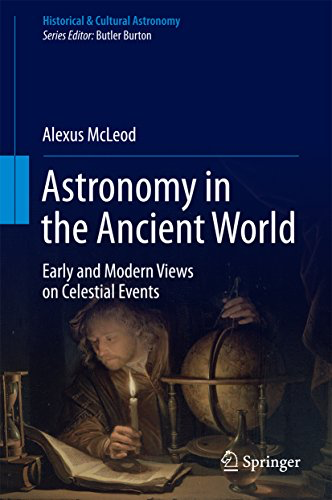
When we look at early Chinese thought through the framework of theistic or other non-naturalist thought, we’re going to see parallels, just like we will when we use other frameworks. To really understand a particular thought, we have to see it through as many frameworks as we can, and try to understand what those who have understood it through yet other frameworks have done. We can’t just understand it from within <strong>one </strong>framework and then declare it’s understood and that’s the only proper framework from which to understand it, just because it’s the one we used, the one that suits us, fits our purposes, or whatever. If we’re really after understanding, we’ll welcome different ways of approaching a text or tradition, because we’re not really going to understand unless we see it in a variety of ways. When we insist on one framework, what we seek is not understanding, it’s intellectual hegemony. It’s the will to power by other than the usual means.
And notice when we’re dealing with history we do this all the time. We look at ancient Chinese thought or other things and say this thing is just a myth, or that thing is an embellishment, etc. This is certainly not how the people who wrote those texts and occupied those times thought about the texts and traditions. But it’s really just a myth—the real meaning of that thing is not what the ancients thought about it, but what we do! Maya bloodletting rituals are just demonstrations of royal power to coerce the population, and not openings to viewing other invisible aspects of the world. So not only do we often demand a single framework for understanding texts and traditions, but we won’t even allow that single framework to be those of the original producers of the texts and traditions in question! What is this other than theft, than intellectual and cultural colonization?
Josh Brown and I use the framework of “non-naturalist” thought in the West to make our case for such thought in the early Chinese tradition. As we argue, the conception of naturalism in the West arose mainly as a response to the religious philosophy of the medieval and modern periods. While naturalism is not really well-defined at all, and seems to mean very different things to different people, a common feature seems to be rejection of the “supernatural” broadly understood as the transcendent, theistic, or otherwise religious in nature. The idea of naturalism arose as a response to the work of theistic philosophers we look at in the text. So if anyone is “non-naturalist”, surely it is figures such as Plotinus, Aquinas, Eriugena, Pseudo-Dionysius, and others we discuss. As we demonstrate in the book, there are numerous thinkers in early China that are engaged in very similar kinds of projects to the above mentioned thinkers, and who develop systems very close to theirs, using concepts similar to theirs, at least from appearance.
Why should we read early Daoist discussions of dao as non-transcendent, when they make the same kind of claims about it that we see Neoplatonists making about the transcendent One? It is the unnameable source of things without itself being a thing. Quite a few early Chinese texts discuss the mysterious origin of things—from well-known texts like Daodejing (as well as its later commentaries) and Huainanzi to more obscure texts such as Hengxian. Just what this transcendent source of the cosmos is like is something we understand fully only through negation. But this is perfectly in following with apophatic theology, the theology of negation, such as we see in the thinkers such as Dionysius and Eriugena. A transcendent entity can only be properly understood in terms of understanding what it is not, what it is without. As the first chapter of Daodejing famously puts it: “the dao that can be dao is not the constant dao.” What we do not find as much in early China is the kind of cataphatic (or “positive”) theology of figures like Augustine or Anselm, which is more widely associated with Abrahamic theology. Although even this we arguably do find to some extent, in texts such as the Mozi.
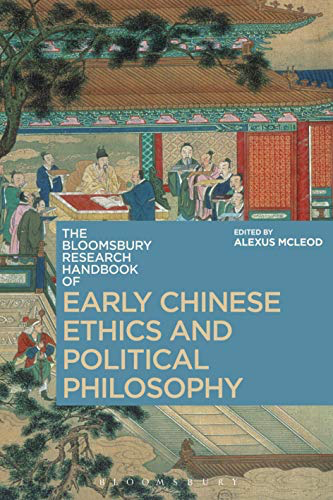
3:16: When we look at the political and moral thinking of the early Chinese is it fair to say there are two main forces – one developed by Confucian thinking that’s all about building harmony, tradition, strong kinship relations and community feelings, a strong sense of sublimating individuality to the group good and so forth, and the dissenters from this, the Zhuangists who we’ve seen earlier when we contrasted their approach to madness with the Confucians. Can you say how this tension work out in politics and ethics – perhaps saying how the different ‘schools’ understood personal identity and what a good political ruler was like?
AM: Part of the difference between groups like the Confucians (more or less coherent) and those like the Zhuangists (less clear who these are, though there were certainly people who adopted these views) were differences surrounding the role of politics in human life and thriving. For the Confucians, political life is inseparable from human life, and thriving simply cannot happen without a proper political state. Thinking about things completely from a contemporary Western perspective can mislead us a bit though. The Zhuangists were not so much opposed to the idea of a communalist politics as to the idea of a politics (or anything) grounded in rigid and unchanging principles, recognizing the value of certain things and the disvalue of others.
We find a spectrum of different views from strongly communalist to strongly individualist in early China. While the views don’t neatly align with schools, such as Confucian or Daoist, Confucians do tend to be on the communalist side of the ledger in general, and some of the most radical individualists tend to get lumped into the Daoist camp. Thinkers who clearly fall outside of either of these camps, such as the Legalists, Mohists, syncretists, and other impossible-to-categorize thinkers, tend to be all over the place concerning this issue.
I use Confucian and Zhuangist mainly as flags of two competing views concerning the development of knowledge and ideal agency. Roughly, the communalist view corresponding to Confucians and a more individualist approach corresponding to the Zhuangist view. For the early Confucians, the person is very much understood primarily in terms of location within community, with its corresponding roles, including associated behaviors, attitudes, etc. This is what the Confucians mean by “ritual” (li), which I often describe as something like contextual standards of conduct. Becoming an ideal person was understood as a matter of perfecting the performance of one’s roles, and thus becoming a better member of the community in terms of contribution to overall communal harmony. Think of a person in the way we might think of a performance musician. What makes for a great musician is the ability to perform one’s role within the context of a performance and a band, which requires the development of communication with, response to, and concern for other members of the band, the audience, and all the relevant participants in the performance. What makes the musician a good one, then, is not just one’s individual skill in playing their instrument, but also one’s ability to musically communicate and fit in with others, one’s social cohesiveness. And excellence in performance requires such communicative ability on the part of all of the members of the band, such that one individual can only be excellent insofar as the other members of their band are also excellent. We begin to see here how the concerns of the individual, what we might call ethics, run into the concerns of the community, or politics. For the Confucians, these are not two separate issues, but one and the same.
Even if we consider the constitution of the individual—the various elements that make up a person can all be understood as themselves communal in nature. My physical features don’t belong to me alone, but they are also those of my ancestors. The color of my eyes or my height are as they are because those are traits of certain ancestors. Those are their features as much as they are mine. My attitudes, preferences, beliefs, and other features—these all come from my communities. I speak English with a General American accent because of my community—that is my community’s language and accent, as much as it is mine. I didn’t invent it, and I don’t own it. The same goes for my attitudes, preferences, style, etc. This all comes from others. We are what we are around. If this were not the case, the phenomenon of culture (whether large scale such as ethnic or natural culture or smaller scale such as the culture of a workplace or institution) would be inexplicable. And because of this I also have responsibility to take care of what is theirs. When I make certain decisions, I am making decisions about something that is not mine alone to do with what I will, but about something that belongs to others as well, belongs to the community of ancestors, of my time and place, and of all the other communities that go into constituting me. Just as we would say that I have no right to destroy, steal, or discard property that belongs to another, on this view I have no right to destroy, discard, or misuse myself, as something that is not mine alone, but belongs more broadly to my community.
For early Confucians, the good ruler is one whose virtue is cultivated so as to influence others in society. Having the most visible and influential place in the community, the ruler’s general role is to encourage and facilitate the proper activity of each member of the society. The ruler does most efficiently and best by cultivating the virtues, such as filiality and social concern, in himself, and serving as example for the rest of the community. Thus, early Confucians tend to focus on ethical issues <strong>as </strong>political, and do not have all that much to say about statecraft, as do thinkers such as the Legalists. A famous passage from the Analects of Confucius puts it this way:
“Someone asked Confucius, ‘why aren’t you involved in government?’ The master responded, ‘ The Classic of History says: ‘filiality and possession of fraternal respect—bring this to government.’ So this is also being involved in government—why need one be otherwise engaged in involvement in government?’ (Analects 2.21)
3:16: When looking at todays Chinese leadership, Legalist and Confucian thinking seem to have survived into modernity. Are the Legalists just Confucians with a greater emphasis on standards to maintain the state and control people – and if modern urban China becomes more individualistic should we be looking to Zhuangist thought to see how challenge to authority might work out in a Chinese context?
AM: Legalism and Confucianism actually have a much closer practical and historical relationship than we often realize. The Legalism of Han Feizi and Li Si guided the Qin state, the first imperial Chinese dynasty, which lasted only 14 years before collapsing in a series of revolts that ultimately led to the establishment of the first Han Dynasty. In the early Han, the Qin was vilified and its ideology officially rejected, in favor of Confucianism. This official rejection of Legalism, however, masked some important truths—that the Han learned from and integrated many aspects of the Legalism of the Qin, and the Qin was not as coldly Legalist as Han scholars claimed. The forms of “Confucianism” endorsed by the Han look very different than Pre-Han Confucianism. Like Han laws and practices, Han Confucian texts look most like blending of Confucian and Legalist ideas. Indeed, we may be able to say that ultimately the Han rulers were better Legalists than the Qin rulers had been.
Just like the first rule of Fight Club is that you don’t talk about Fight Club, the first rule of Legalism is that you don’t openly endorse Legalism. As we see in texts such as the Hanfeizi, Legalism involves engaging in manipulation, subterfuge, misdirection, and other such means in order to maintain power. Such techniques tend to lose their effectiveness when one announces that they’re being used. How effective could a manipulator be who advertised himself as a manipulator? In the Han, we see this lesson taken to heart, and while we see the outward guise of Confucianism, texts often look far more Legalist. Now it’s debatable of course to what extent the Qin state did actually endorse Legalism openly. Unfortunately for us and for the Qin, due to its brevity the only surviving accounts of the Qin rule were written by the opposition, the historians of the Han dynasty, who had more than a little motivation to present the Qin as villainous and incompetent. While surely there were aspects of Qin rule that contributed to its demise, it’s extremely unlikely that the Qin state presented itself through the ideology of amoralistic self-concern. The concerns of the Confucians and those of the Legalists, even though often seen as opposed to one another, were not altogether different. And even the categories of “Confucian” and “Legalist” begin to lose a bit of their meaning once we get into the Han dynasty, in which we find thinkers and systems combining aspects of what was formerly distinct. In so-called Huang-Lao thought, we find an amalgamation of Confucian, Daoist, and Legalist thought. The syncretism of the late Warring States through the early Han period often made it difficult to categorize a particular view as Confucian, Legalist, or otherwise.
What we can certainly say, though, is that both Confucian and Legalist ideas (as well as Daoist and many other ideas) influenced Chinese methods of governing from the earliest periods, and continued to influence them throughout Chinese history and even down to the current day. Of course, Confucian and Legalist thought have a broader influence than just the modern nation of China as well. They went on to influence East Asia more broadly, as well as other areas of the world, including the West.
There are major debates today concerning the identity of Confucianism, who represents Confucianism, and its relationship to government in China. While Legalism as an explicitly accepted idea has gone by the wayside—no one wants to call oneself a Legalist—Confucianism very much enjoys pride of place. It has been associated with Chinese culture more generally, and so discussions and debates concerning Confucianism are often actually discussions and debates surrounding the nature of what it is to be uniquely Chinese, as opposed to simply copying Western ways of governing or engaging in social action. Legalism does not have this cultural cachet, for a number of reasons based in the long history of China. As mentioned above, Legalism was positioned as the villain early on, after the rise of the Han, which became the first truly successful, large-scale, and long-lived imperial dynasty of Chinese history. Confucianism also solidified its association with the native and culturally Chinese with the long history of Buddhism in China. Confucianism was often used as a counterbalance to Buddhism, and an alternative to Buddhism, which originated in South Asia. Thus Confucianism became associated with purely Chinese tradition, and many different kinds of people, with very different ideas, have claimed Confucianism for themselves (a situation no different than that of any major religion or philosophical movement). This is still the case today in China (and elsewhere in east Asia).
As far as the place of all of this in modern China—I think individualism may be growing to some extent (though it looks in some ways different than Western individualism), and I personally don’t think this is altogether a good thing, or that it corresponds to a Zhuangist view. The Zhuangist is not really as friendly to individualism as we sometimes think. While the Zhuangist view does reject the notion of the self being chained to the human community narrowly, it also rejects the notion of the self being restricted to the individual and chained to the wants and perspectives of the narrow individual. It rejects the very notion of the self as a stable and separable and autonomous thing, and understands it as something that ultimately limits us, whether construed communally or otherwise. For the Confucian, self is an unavoidable fact, and it is the human community that constitutes the self. For the Zhuangist, the self is a conventional construction that sometimes helps us and sometimes hurts us, and thus we need to know when to use it and when to set it aside. To reject the Confucian view doesn’t then leave us in a position where we adopt a kind of Western “autonomous self” view. Zhuangists would reject this as well. In fact, they would probably see it as even worse than the Confucian view. A self chained to its own narrow desires is just as bad as a self chained to the will of the community—it is a self chained either way.
What the Zhuangist would suggest is to encounter the world in a way that is not constrained by the notion of self, either communal or individual, and thus allowing us to interact with the world on its terms, rather than those imposed by whatever kind of self we choose to construct. So the development of Western-style individualism in China doesn’t really represent a turn toward Zhuangzi, but rather a turn from one way of thinking Zhuangzi would see as problematic to another way of thinking Zhuangzi would see as problematic. It’s true that one can find criticism of the Confucian communalist conception of the person in the Zhuangzi, but we sometimes think that if Zhuangzi is criticizing communalism, then he must be endorsing individualism. He’s not—he’s got criticisms for that too. If we have to think of what Zhuangzi is criticizing as any kind of ism concerning the self, it’s “selfism”, being constrained by a particular rigid notion of the self, whether communal or individual, and thus being rigid and unable to grow, to change, to transform along with the world as it transforms. The ideal Zhuangist will be one who is sometimes communal, sometimes individual, and sometimes no self at all—just a flittering experience of floating on the wind like the famous butterfly at the end of Chapter Two of the Zhuangzi.
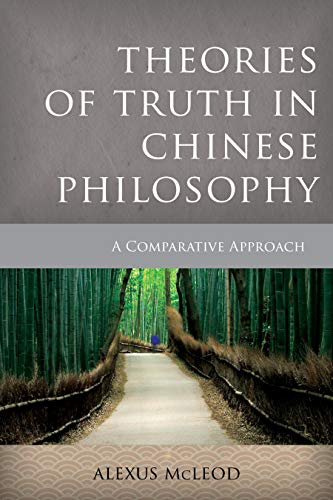 3:16: You argue that early Chinese philosophy is interested in theories of truth, and that there are different theories. Can you say something about these are how do they compare and contrast with theories emerging out of different philosophical traditions, such as the ones found in the Christian west, Arabic Islam or contemporary Anglo/American traditions?
3:16: You argue that early Chinese philosophy is interested in theories of truth, and that there are different theories. Can you say something about these are how do they compare and contrast with theories emerging out of different philosophical traditions, such as the ones found in the Christian west, Arabic Islam or contemporary Anglo/American traditions?
AM: The theories of truth found in early Chinese thought are largely the same in kind as those we find in other traditions such as the ones you mention, with some local differences. One of the most fascinating and rewarding things about doing comparative philosophy and studying the history of global philosophy more generally is that one can see certain patterns emerging, certain regular ways that humans tend to form and think about certain concepts around the world. When left to figure things out, we tend to do it the same way in different areas—this is just a function of the kind of animals we are, of the ways our brains have developed over the millions of years of development that brought us to the point of engaging in philosophical thinking. One of the things I started to realize after years of studying numerous traditions of philosophy is that, despite (sometimes vigorous) claims to their disparate nature, they’re pretty often doing the same things, generating the same kinds of debates, formulating the same concepts.
I think traditions like to think of themselves as unique, special, and in possession of a particular insight and importance distinct from other traditions, in just the same way as individuals tend to think of themselves and their own groups as uniquely good, true, skilled, or otherwise valuable. Just as in the case of individuals though, this is mainly just a story we tell ourselves to bolster our sense of self-worth, and has little basis in reality. It’s a standard human cognitive bias. There’s even a name for it (or numerous different names)—superiority bias. Generally, claims that one tradition possesses X while another does not are due to either failure to understand one tradition, or motivation to advance one tradition as superior to another. This is even the case for contemporary philosophy—I haven’t seen much at all produced by philosophers today that hasn’t been done by figures earlier in the history of philosophy around the globe. This is not to impugn the intelligence or creativity of philosophers today of course—it’s just that the human brain works as it does, in the same patterns that it does, and this has not changed significantly in the 3000 or so years of accessible philosophical thought. Just as when we create new languages over time, those languages tend to have the same features as other human languages, philosophical systems have these shared elements as well.
As I describe in my book on the topic, we find a number of different theories of truth in early Chinese thought as well. One of the interesting and important features of early Chinese conceptions of truth is the sense in which a broad conception of truth is the main concern. Truth as a property of language is just one among many interests in early China associated with truth, although such concern has become dominant (almost to the exclusion of other aspects of truth) in contemporary analytic philosophy. Truth is not limited to language considerations in the West more generally, of course. The ancient Greeks, the medieval European and Middle Eastern philosophers, and others have been interested in extra-linguistic truth. But this broader concern with truth is something the Chinese tradition had a greater focus on than we tend to in contemporary Western philosophy, which is why we have tended to miss much of what is involved with discussions of truth in early China. When we look to other traditions with a narrowly defined understanding of a particular thing, unsurprisingly we will not find it. It’s like looking to see if another nearby town has a mayor, and taking a picture of the mayor of our town to use as a standard. The person they present as mayor may be a different height, gender, race, or whatever—and maybe it also turns out that the mayor of that town, in addition to doing the same kinds of things our mayor does, also delivers the newspapers and moonlights as a security guard. So on the basis of this, we determine that the neighboring town doesn’t have a mayor, because if they did, they’d have a person who looks like our guy and does exactly the same things he does. This is one reason I think every philosopher (and really every human being) should read the Zhuangzi—it’s good at pointing out the kind of narrowmindedness we’re prone to fall into, and offers strategies for overcoming this.
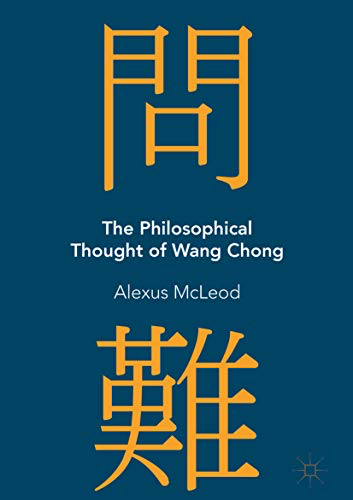
3:16: You’ve done a case study of the Chinese philosopher Wang Chong – if we were to compare him to someone more familiar to my parochial knowledge of philosophy, in terms of whom might I best think of him – Descartes? Hume? - what were his interesting contributions to philosophy, were his arguments any good and was he as original as he was considered by westerners when they first got interested in him back in the nineteenth century, people like Needham calling his a ‘proto-scientist’?
AM: Wang Chong was kind of an outlier among early Chinese philosophers, and is tough to understand because he’s not as connected to schools or wider patterns of thought as other thinkers of his time. I think even today no one is really able to make complete sense of just what he was after. I think he was conflicted, and he was trying different things, which ended up leading to very different views across his lifetime and through his work. The one seemingly consistent theme of his work, though, was its critical tone. It comes through clearly in Wang Chong’s writing that he had no patience for what he saw as the irrational, uncritical, and wrongheaded ideas so many in his society simply accepted on face value. This included the acceptance of the views of esteemed ancient thinkers, simply on the basis of their traditional authority. Wang comes across in the Lunheng as variously angry, bewildered, and amused by the acceptance of views he often disparagingly refers to as “common” or “vulgar”, and much of his work is devoted to demonstrating the logical problems with these views. In addition to this, he attempts to develop reliable methods for the evaluation of claims, whether in texts or in speech. According to his own view, he wrote his works (compiled in the text now known as Lunheng) in order to make clear the distinction between what is true and what is false, and to expose the falsehoods perpetuated by people in his day and blindly accepted by others
If we compare Wang Chong to European philosophers, his thought and work resembles a few different figures, I think. Both Descartes and Hume, as you mention, certainly share intellectual features with Wang Chong. We can find similar thinkers to Wang Chong in earlier periods as well. He has always reminded me of Socrates (at least Plato’s depiction of Socrates), in his critical tendencies, and in the critical method he develops, which is strikingly similar to the Socratic elenchos. As I discuss in the book, Wang Chong develops a method he calls ‘wen nan’ (questioning and challenging), which has as its aim the discernment of truth. Wang describes it as a two-part method. First, one engages in questioning (wen) to clarify a position that is unclear and tie it down to making a distinct claim. Then one challenges (nan) the claim to discern whether it is ultimately consistent with other things one knows to the the case. In this way, we can properly evaluate and discern which claims we ought to accept and which we ought to reject.
Wang’s arguments throughout the Lunheng are directed at pretty much everyone. He doesn’t represent the teachings of a particular school. Rather, he thinks that there are “empty statements” as well as those that are acceptable within almost every teaching and text, and his method aims at making clear the distinction between these. He does seem to have special disdain for what he calls “common” beliefs though—the superstition, lore, and other folk beliefs of non-scholars of his day. To some extent his attack on these views represents Wang going after the low-hanging fruit, and sometimes his arguments on these fronts can be a bit tedious and forced. This is not unlike much of what we see in contemporary analytic philosophy, though, which, like Wang’s work, at its best and where fruitfully applied is enormously powerful, but applied to everything just becomes pedantic and unhelpful. Wang’s best arguments can be found when he tackles difficult philosophical issues like that of allotment (ming) and free will, truth, method, and ways of knowing—bringing his method to bear on issues occupying scholars of his day. Wang’s arguments are at their most tedious and browbeating when he uses his method to show the incoherence of common beliefs like the existence of ghosts or portents (although these arguments are also often the most humorous, and sometimes I think that may have been part of the point).
Needham’s claim about Wang Chong as a “proto-scientist” were echoed by many of the scholars in the West who became interested in Wang’s thought during that time, beginning as you mention around the late 19th century. Much of the Western interest in Wang’s work was driven by his “rediscovery” in China as well during the late Qing. During that period, criticism of the Chinese intellectual past became a major feature of Chinese philosophical thought, and it was all too easy to see Wang as an ally in that project. This lead to overzealous readings of Wang as a “skeptic”, “rationalist”, or “materialist”, things he never really was. Wang Chong’s thought was certainly consistent with the scientific spirit and method. He was an advocate of testing claims against reality, not accepting things without evidence, and requiring rigorous standards of demonstration, all of which are hallmarks of scientific thinking. But I don’t think Wang’s work is necessarily a precursor to scientific thought in early China—there were a number of other thinkers in and before Wang’s period who engaged in something much closer to science in the modern sense. Wang does certainly share the critical spirit, though, and this is largely what interested 19th and early 20th century scholars who engaged with his work.
3:16: And finally, for the readers here at 3:16, are there five books other than your own that you can recommend to take us all further into your philosophical world?
AM: This is a tough one because there are so many! My philosophical world is kind of a mess—everything is in there. I read and enjoy it all, even though I’m trying to be more narrow in my focus as I get older. It just gets kind of overwhelming to be everywhere at once. In coming years I probably will stick more closely to early Chinese thought with the occasional foray into other topics, and I’ve also got some super big-picture general works on the history of philosophy in the pipeline. So I’ll stick here to early Chinese texts. Each of the texts below is in Classical Chinese, but I will include for each my favorite English translation (which in a few of the cases is the only available translation!)
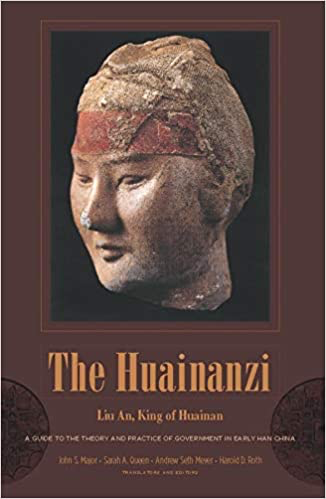
Huainanzi—John Major, Sarah Queen, Andrew Meyer, and Harold Roth translation
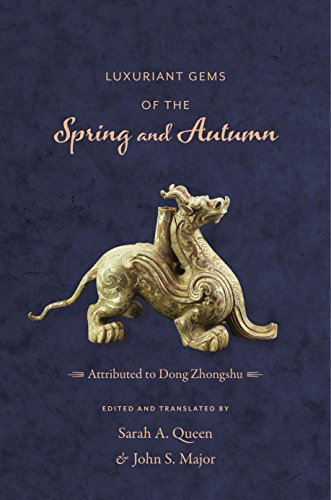
Chunqiu Fanlu—Sarah Queen and John Major translation
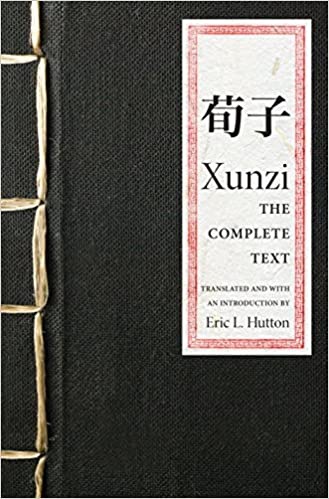
Xunzi—Eric Hutton translation
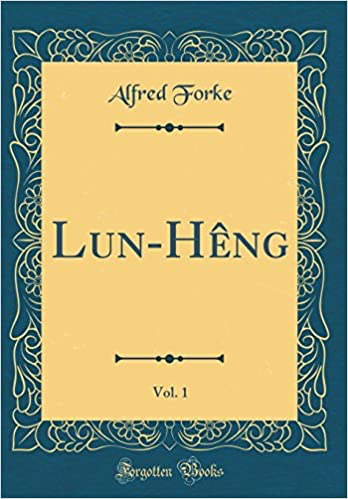
Lunheng—Alfred Forke translation
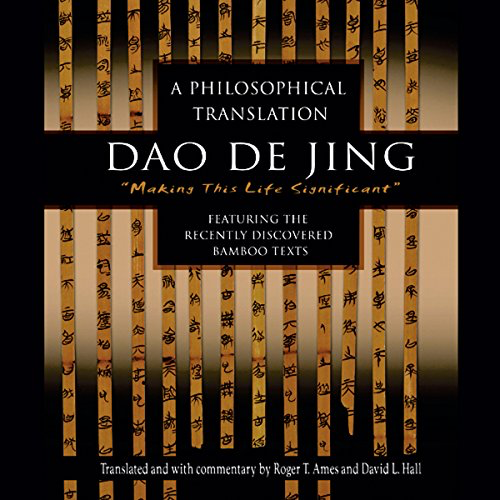
Daodejing—Ames and Hall translation

ABOUT THE INTERVIEWER
Richard Marshall is biding his time.
Buy his second book here or his first book here to keep him biding!
End Time series: the themes
Huw Price's Flickering Shadows series.
Steven DeLay's Finding meaning series
Josef Mitterer's Josef Mitterer'sJosef Mitterer's The Beyond of Philosophy serialised
NEW: Art from 3:16am Exhibition - details here